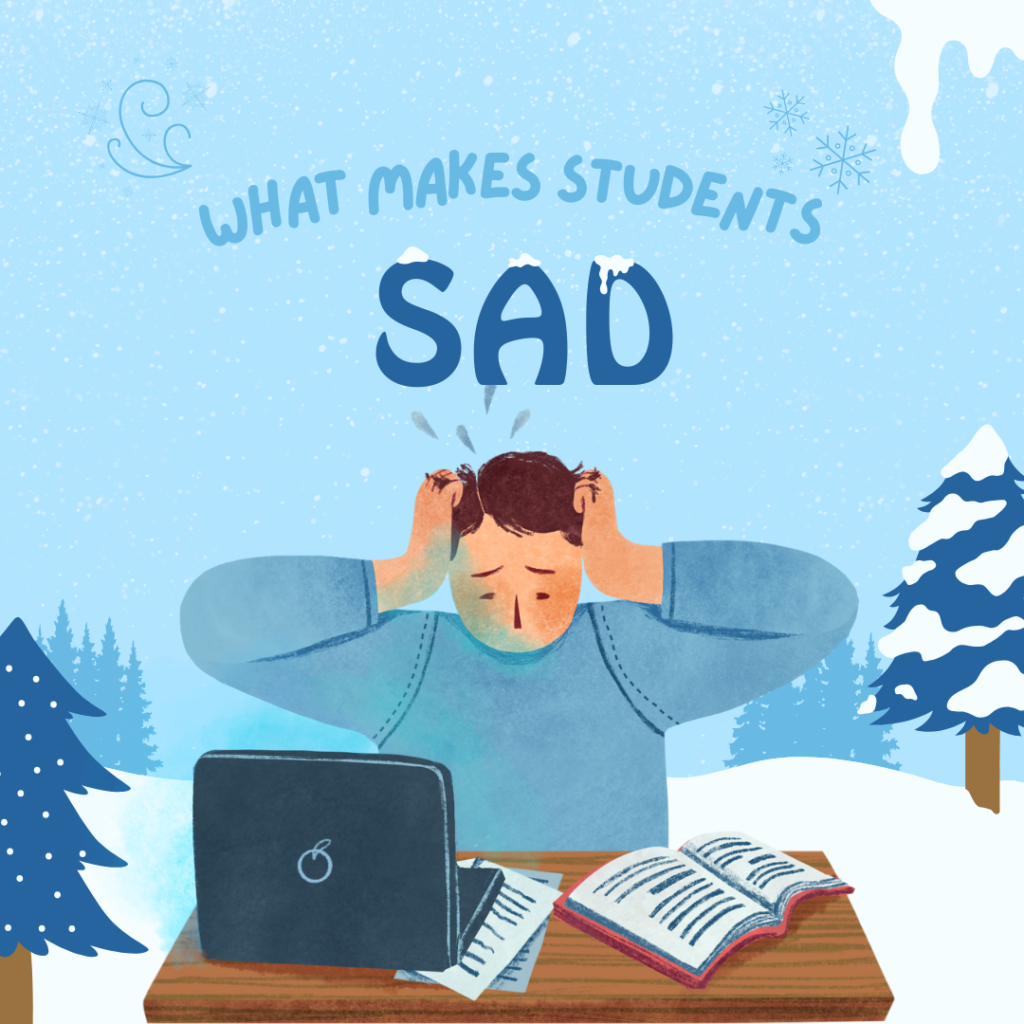The most wonderful time of the year: when the weather becomes unbearingly cold and students begin their descent into an all-consuming spiral.
Winter time is chock-full of holiday spirit, family time, appreciation for life and seasonal depression.
Seasonal Affective Disorder (SAD) can cause negative internal feelings and harmful physical effects. According to the National Institute of Mental Health, SAD is often caused by the sudden shortness of days. Symptoms of seasonal depression include oversleeping, social withdrawal, loss of interest in hobbies, physical pains such as headaches and changes in appetite.
For students, these negative feelings tend to accumulate at this time of year. This is particularly harmful because of the abundance of schoolwork teachers assign in the winter months. The awkward scheduling with two major holidays only a month apart leads to intensive amounts of work in the weeks between Thanksgiving and Christmas break.
With this combination of excessive stress and seasonal depression, life can feel hopeless for the student population. Students experience a severe lack of motivation to complete a large amount of work, resulting in a cycle of procrastination, overexertion, lack of sleep and feelings of dread.
“I’ve lost motivation to do school work because of the wintertime. It’s very hard to do work you don’t want to do. When you’re cold, tired, and the sky is dark,” senior Isabelle Li said. “It’s just an endless cycle of sadness.”
The assertion is a common one among high school students. Particularly for seniors, who juggle assignments as well as college applications. Calmness seems a faraway memory for students at this time of the year, with their future on the horizon and the burden of schoolwork weighing heavily on their shoulders.
Conversations about mental health have popped up more in recent years. While school counselors and mental health advocates push to destigmatize the conversation about seasonal depression, this difficult and highly important time of the year is still a significant struggle for students.
“It’s all about the importance of mental health until you’re cold and exhausted and then it’s not about that anymore,” Li said.
If any student is struggling with depression this season, there are options available. Counselors are always open to discussions about mental health. There are also more eccentric avenues of care, like
the happy light which emits light similar to the sun to offset symptoms of Seasonal Affective Disorder. Seasonal Depression: What Makes Students SAD?
